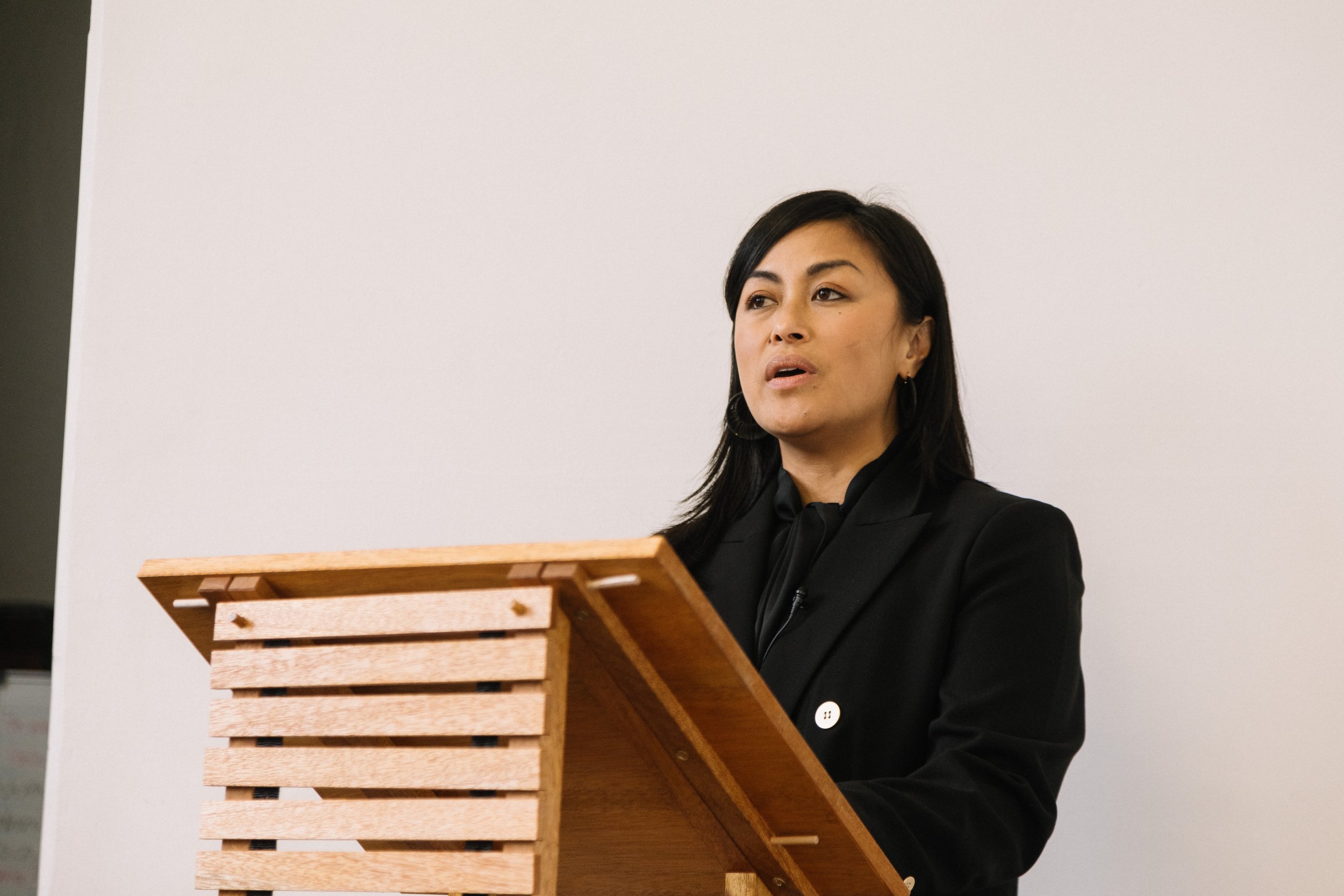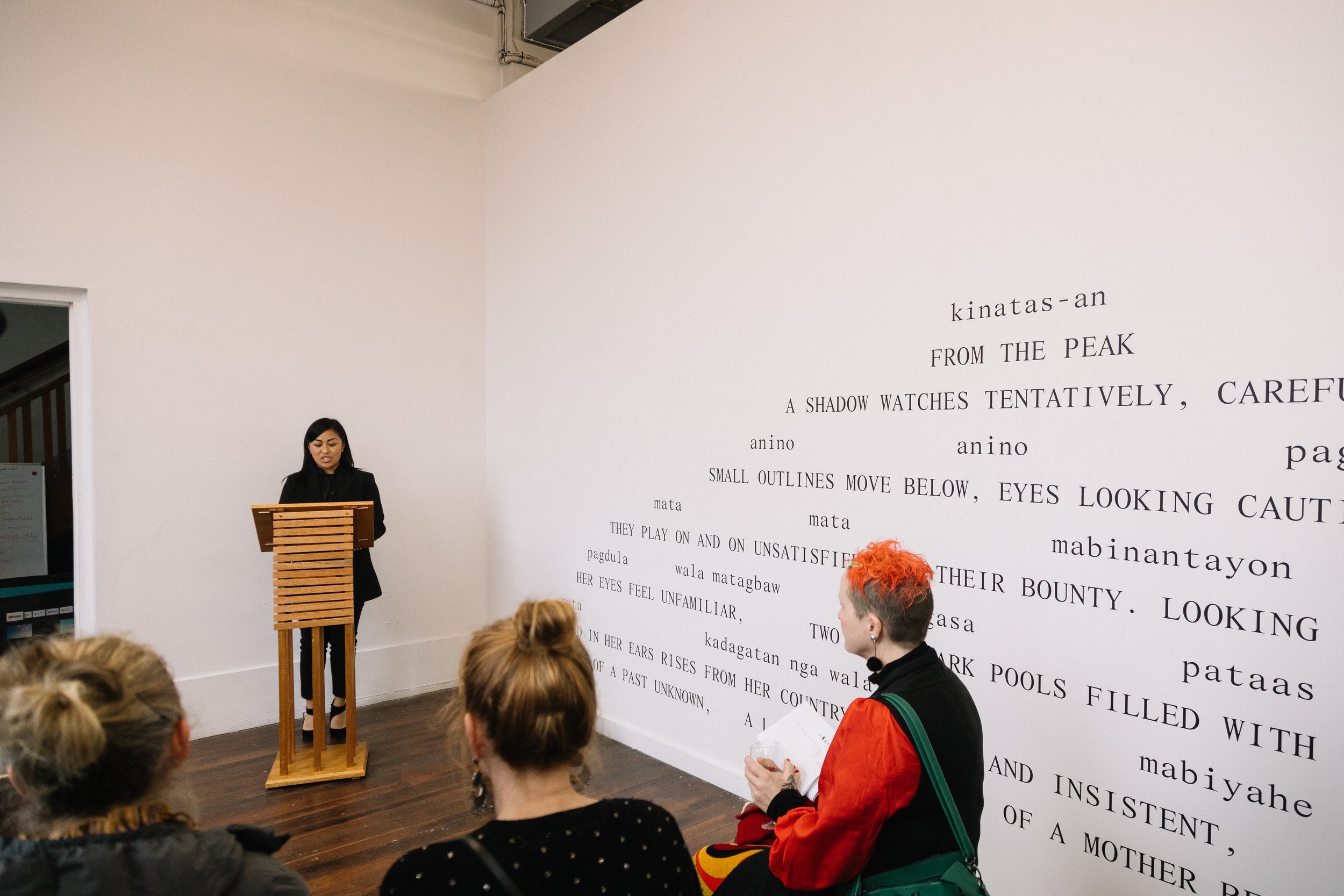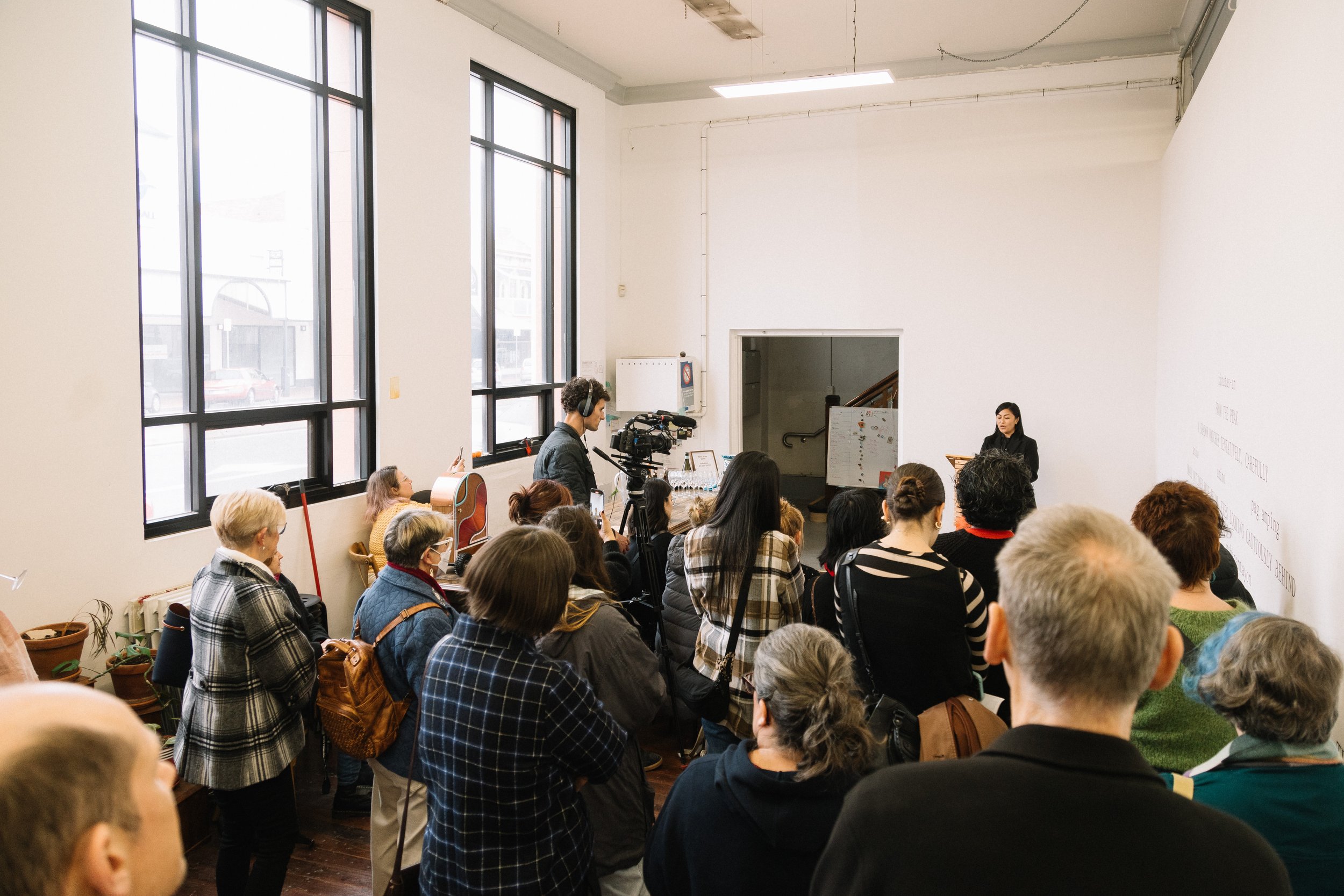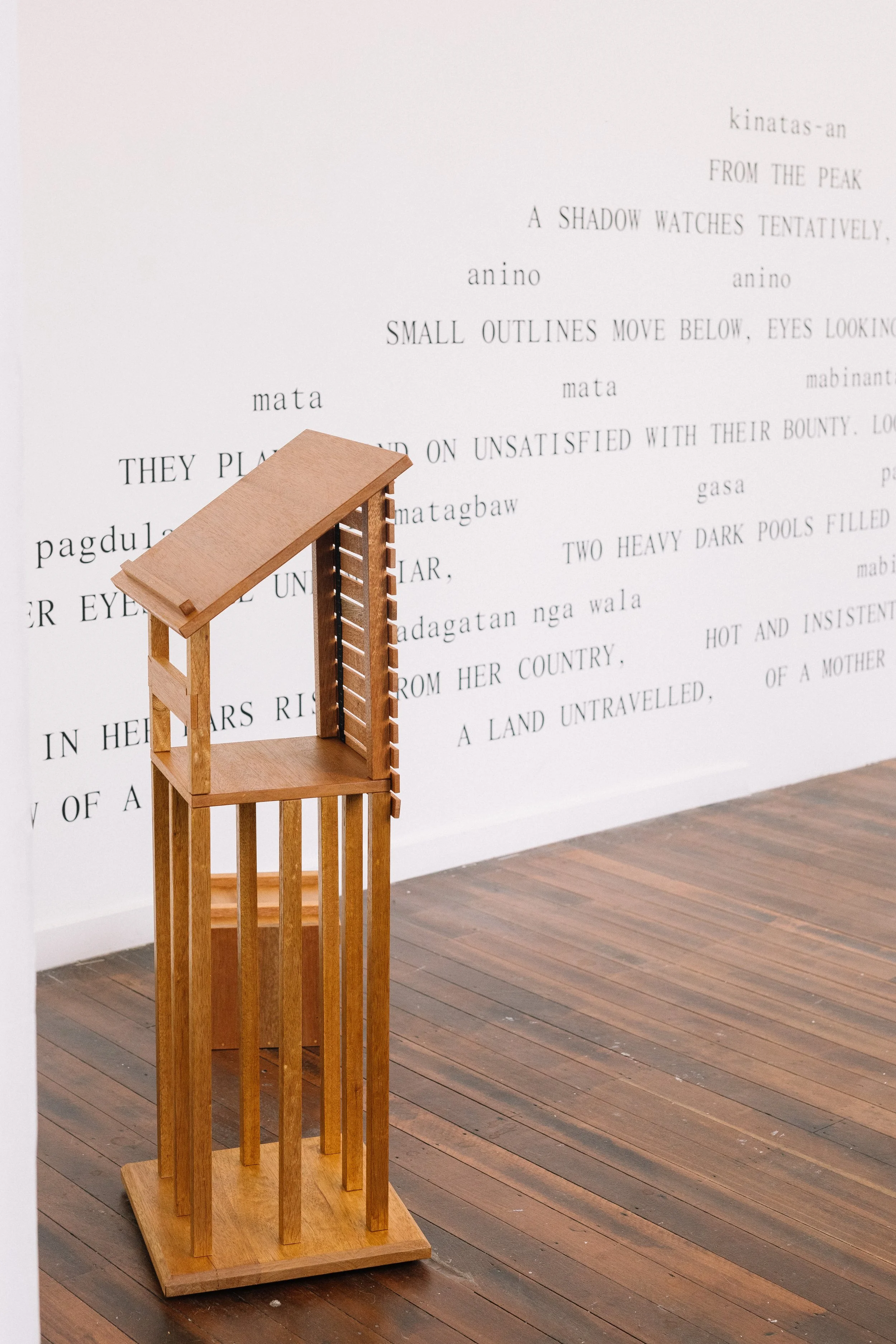
Louise Flaherty / Rayleen Forester
Louise Flaherty
Louise Flaherty is an artist and arts worker based on Kaurna land Adelaide. Informed by quiet reflection on the natural environment with a focus of research native flora communities of South Australia. Louise is a socially engaged artist and her current practice spans drawing, installation and participatory practice with a focus on collaborative community driven projects.
‘Dear little Orchid, Thank you for waiting. In the dark, after the dry, after the heat, after the smoke, the rain, the tears. Thank you for pushing up and up, for seeking the sun and the warmth and for opening up such beauty. I’m so glad you’re here.” (1)
Plant Carers is a body of works by South Australian artist Louise Flaherty that encompass a large series of ink drawings developed since 2022. Painted in a bold, graduated and monotone pallet, ghostly white inks contrast against dense black backgrounds like an old photographic negative. The intimacy of these portraits of busy hands, sometimes gloved, with tangled weeds or sifting through specimens, focuses on the small actions of tending and nurturing. Flaherty delves into this complex relationship of humans and plants to explore the subjective intimate moments of care, as well as the environmental impacts of loss, light, salt, fire and flood. Almost like a filmic score or a soundtrack walking companion, Flaherty’s exhibition is accompanied by an original score by musician and composer Belinda Gehlert. The piece responds to the visual story line of these tonal works. This exhibition focuses on those carers that nurture, tend and protect the secret life of plants. It muses on a climate future that wrestles with the devastating effects of human’s need to consume.
After living in the Northern Territory over ten years ago, Flaherty’s work had a turning point when she arrived back in the suburbs of Adelaide and was overwhelmed by the absence of plants within the layered concrete of suburbia. This systematic vanishing of plant life and local species was steadily being replaced with hard sidewalks, roads and city parks. The sense of loss that Flaherty experienced, sparked the beginning of an intense focus on the lives of plants and seeds and the impacts of our relationship to them as humans.
Whilst this exhibition focuses on carers and their relationships to plants, Flaherty’s practice has continually developed through collaborative and community-based processes. Working with scientists, ecologists, volunteers, and conservation groups she collaborates with performance artists and musicians to lead a line of inquiry. Through listening, learning and responding to site, Flaherty collects information like a diary, that responds to loss. The subdued colour pallet and commitment to ink, holds a washed grief at the progressive, ghostly disappearance of plant species.
Plant Carers focus marks a shift that holds this sense of loss, but is also fuelled by hope and a kind of reverence for the people who tend with such love, tenderness and dedication. These hands show the lives of those who spend days, weeks, some even decades, observing the lifecycles and generations of plants, their habitats and their intricate systems. Flaherty herself has built a kind of ecosystem through a practice which is inherently socially connected and engaged. Participation, performance and community are inherent, as she connects artists, researchers, and musicians with audiences. Flaherty remarks on the breadth of people she has worked with and their innate sense of generosity. This observation draws from her time spent at the Guildhouse Collections Project at the South Australian Botanic Gardens in 2021; through to the site specific community responsive work in the fire affected lands of Lobethal Bushland Park. Here, on the Country of the Peramangk and Kaurna peoples she worked with collaborators Gehlert and dance artist Tanya Voyages in April 2023.
Memorial and reverie intertwine through white ink on paper and the soft colours of piano chords and cello. Like roots, the emotional connection to the sense of loss is what holds our attention to these plant carers and their everyday miracles. The music allows us to observe the bustling city through quieter eyes. We look beyond the concrete footpaths and red roofs to see the changing tree lines, the salination of rivers, the tarring of roads severing arterial lines of root systems that have connected plants to each other like a mapped umbilicus for decades. Whilst the audience sees the tender care of touch and connection from fingertips to tendrils, the stories that lie beneath are an homage and an allegory. ‘It takes a community to care’ (2) reflects Flaherty as she honours these hands of action that literally, hold the link between plant extinction, and hope and ultimately, asks you to do the same.
Rosalind Lemoh
Rosalind Lemoh is a contemporary artist and writer based in regional NSW, living and working on Ngunnawal and Ngambri country
1 Community participant, ‘understory: postcards from Lobethal Bushland Park’, April 2023
2 Hayward, Nick, ‘The Platypus Guardian’, Wild Bear Entertainment Pty Ltd, 2023 , Australian Broadcast Cooperation, June 2023, 53 mins, https://iview.abc.net.au/show/platypus-guardian
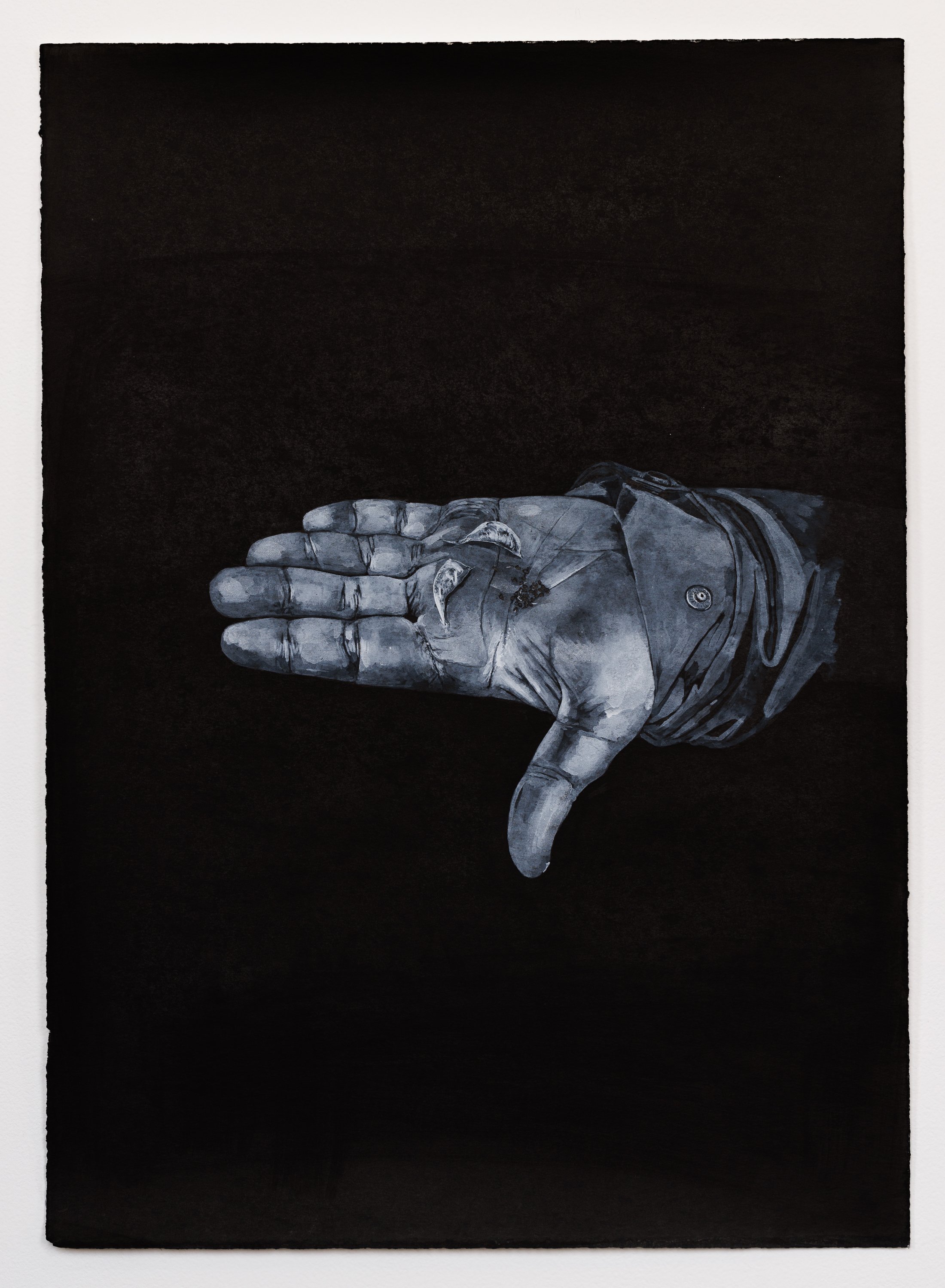
Louise Flaherty, Dani, 2022, ink on paper, 70 x 50cm.

Louise Flaherty, Floral, 2022, ink on paper, 70 x 50cm.
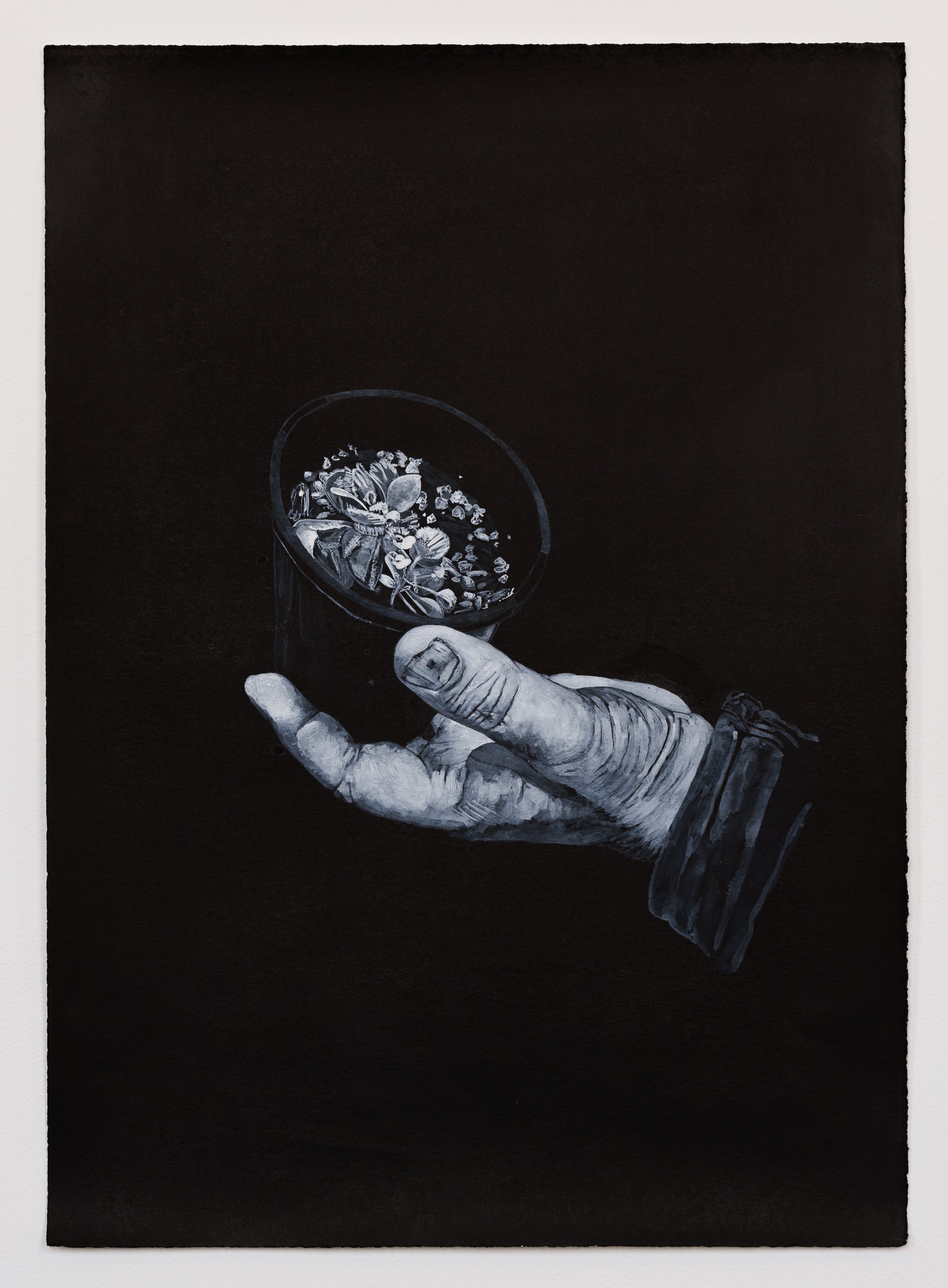
Louise Flaherty, Matt, 2022, ink on paper, 70 x 50cm.

Louise Flaherty, Paul, 2022, ink on paper, 70 x 50cm.
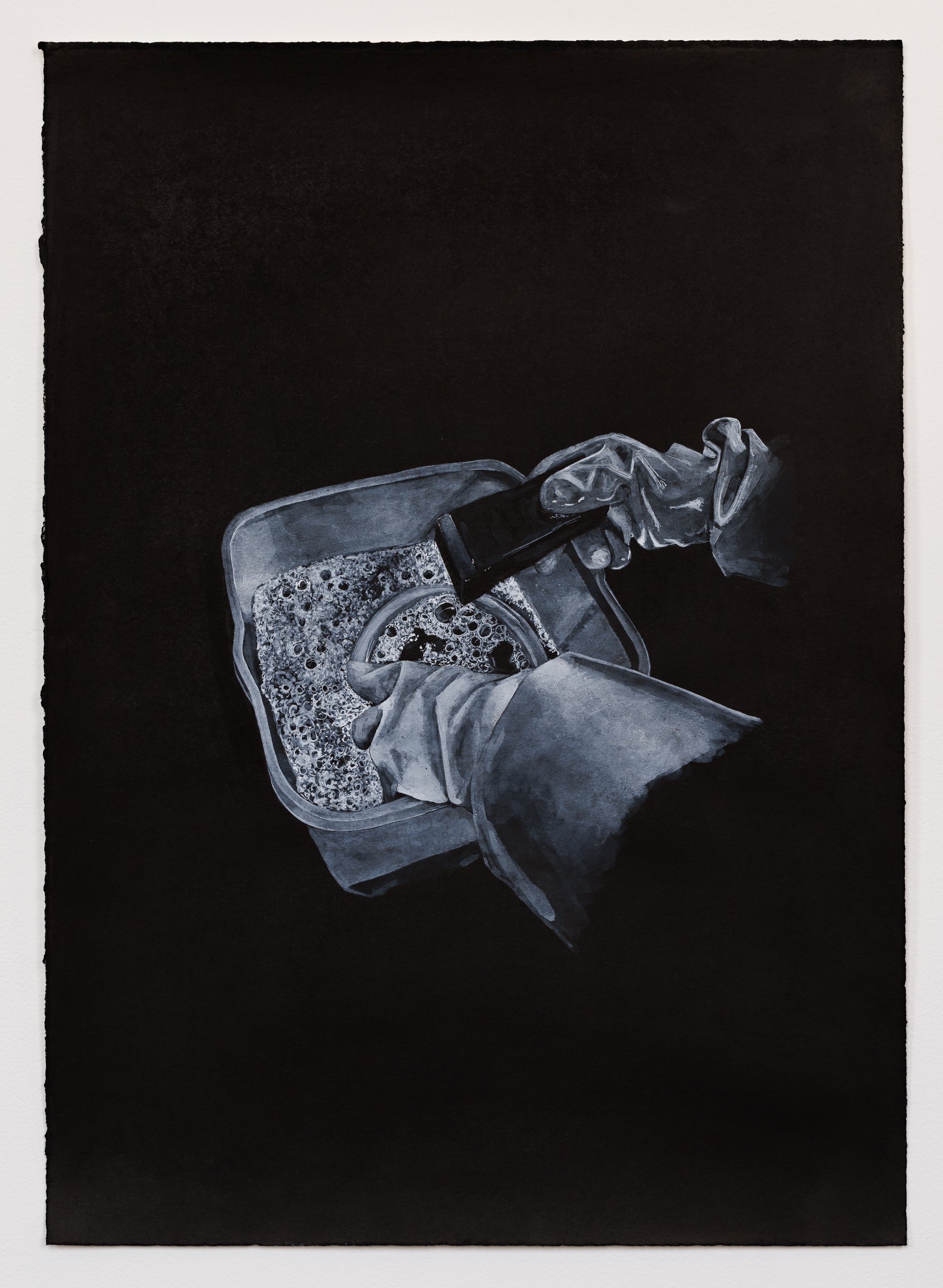
Louise Flaherty, Robyn, 2022, ink on paper, 70 x 50cm.

Louise Flaherty, Vicki Jo, 2022, ink on paper, 70 x 50cm.
Rayleen Forester
Rayleen Forester is an arts worker based on Kaurna Country. Rayleen’s curatorial interests focus on cross-cultural engagement and outcomes through experimental curation and programming, performance and writing. Rayleen has worked for major international biennales and art galleries in both Europe and Asia including MANIFESTA9 (Belgium) and MEM (Japan). She co-curated the long-established Artists’ Week symposium with Lars Bang Larsen (Denmark) and Richard Grayson (UK) for the 2014 Adelaide Festival. She has written for exhibition catalogues and publications including UNmagazine, Artlink and Broadsheet journal. She is a founding member of South Australian initiatives FELTspace, fine print and is currently Associate Curator at Adelaide Contemporary Experimental.
ACKNOWLEDGEMENTS
Jennifer Trijo, Peter Fong, Person Books, Thomas Smeets, Aunty Margaret Brodie, Jennifer Eadie, Kaurna Womens Group.
Rayleen Forester // Mother Mountain
MOTHER MOUNTAIN, is an experimental performance lecture and text-based installation examining filipinx diaspora language, cultural heritage and domestic labour. Based on a folklore tale of a mother who transforms into a mountain this experimental work transcribes the experiences of motherhood disconnected from its historical body in Visayan, Tagalog and English.
Written by Rayleen Forester and performed by multidisciplinary artist, Jennifer Trijo this work touches on cultural embodiment, hereditary responsibility, and our nuanced relationship with colonised lands.



